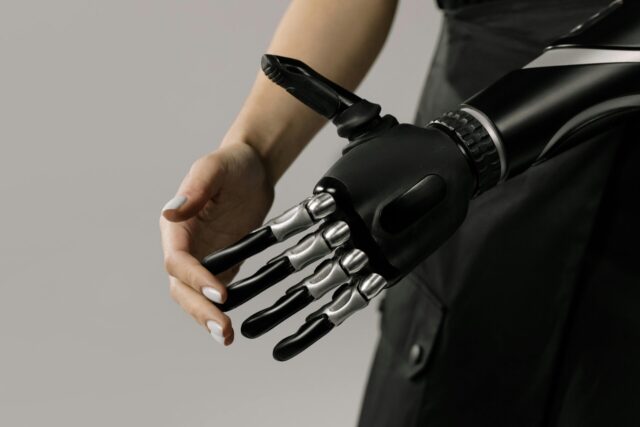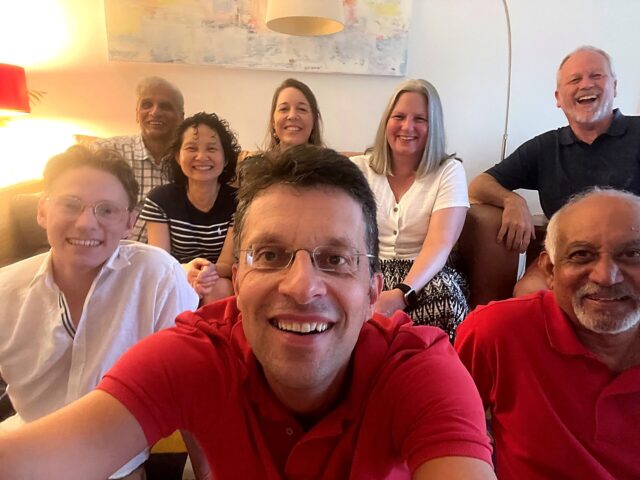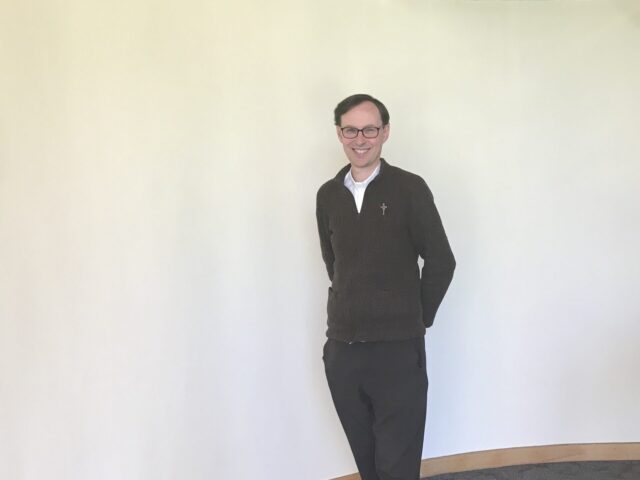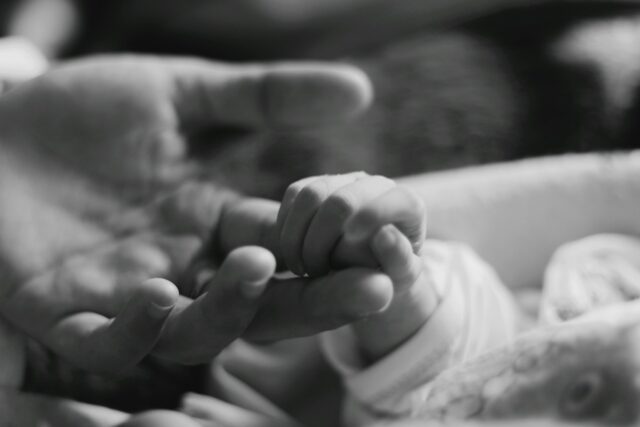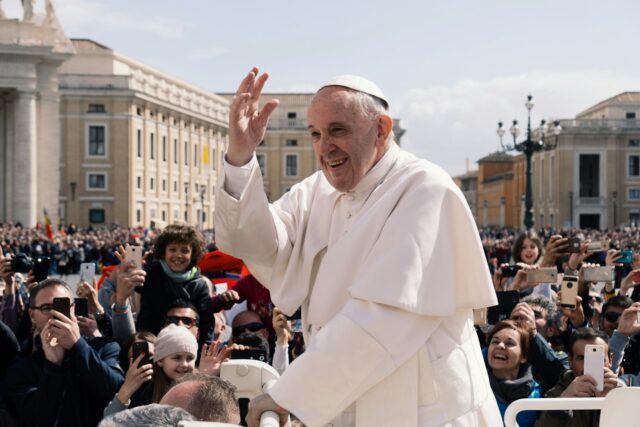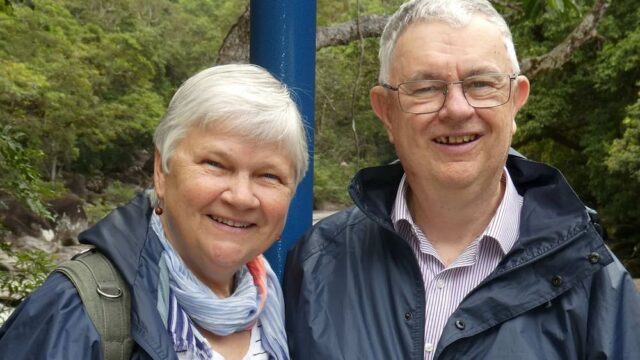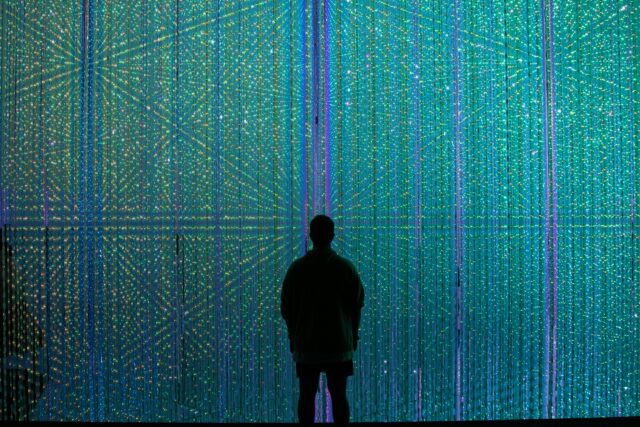

As we remember the revolution that we call the Reformation, we are also remembering an age when another revolution was in its infancy: the scientific revolution. But what we forget, or perhaps never knew, is that the revolution that gave us science as we know it today, was one largely led by Christian believers faithfully exploring the works of God’s creation and pointed to by the Psalmist: “The heavens declare the glory of God.” In the words of one writer, “[Nicolaus] Copernicus, as much as Luther, revolutionised how Europeans thought of themselves, their world, and their God.”
Hebrews 12:1 calls Christians to remember those faithful people – “such a great cloud of witnesses” – who served God with perseverance in the face of an unknown future. Not only people like Martin Luther but also the Polish Nicolaus Copernicus and Australia’s bionic ear pioneer Graeme Clark. I work for a cloud of Australian witnesses called ISCAST–Christians in Science. It’s a network of people who love both science and God, and it’s led by eminent scientists around the country who are committed to Jesus Christ. They are people who would own Copernicus’ words, believing that it is their “loving duty to seek the truth in all things, in so far as God has granted that to human reason.”
“For a long time I wanted to become a theologian. Now, however, behold how through my efforts God is being celebrated in astronomy.”- Johannes Kepler
We live in an era of increasingly strident secularism, including “new atheist” claims that science and religion are in conflict. In the public space it’s increasingly common to hear people say “I believe in science so I couldn’t be religious.” In that context, it’s a problem for the church of Jesus Christ if we forget this cloud of scientist witnesses who have proclaimed the harmony of science and Christian faith over the centuries.
So many of the scientists of history, including those involved in ISCAST and numerous others in Australia, are people profoundly moved by seeing the hand of God in the creation. And they are people who dedicate their lives to uncover the mysteries of that creation. People who are part of a long Christian tradition of celebrating the “two books of God”: God’s word in the Scriptures and God’s works, seen in creation and uncovered by science.
Nicolaus Copernicus: Admiring the maker of all things
Copernicus’ best-known book, On the Revolution of the Celestial Spheres, published the year he died in 1543, sparked the so-called Copernican revolution. That revolution undid the 2000-year-old view that the earth was at the centre of the universe, and it was famously taken up by another devout Christian, Galileo. In his famous work, Copernicus makes it clear that the universe is ordered by God and that by “diligent contemplation” of it people might be awakened to “admire the maker of all things”.
Christian witnesses who served their God by investigating the creation include hundreds of the great names of Western history. To name a few who are prominent in the history of science: William of Ockham gave us Ockham’s Razor, the principle that the simpler theory is likely to be correct; Hildegard of Bingen was a 12th-century Benedictine abbess and pioneer “biologist”, Jean Buridan gave us the beginnings of the idea of inertia; Descartes, the philosopher who gave us “I think therefore I am”, was also the mathematician responsible for the Cartesian plane (remember the X–Y axes we used at school?).
And Johannes Kepler, at the centre of the scientific revolution with Copernicus, and the one who correctly described the elliptical movement of the planets said, “For a long time I wanted to become a theologian. Now, however, behold how through my efforts God is being celebrated in astronomy.”
We could go on naming deeply religious heroes of science: Francis Bacon gave us “the scientific method”; Newton (his universal law of gravitation put men on the moon); Boyle (the gas law); Linnaeus (natural taxonomy); Bernoulli (his law keeps planes in the air); Lavoisier (we owe chemistry to him); Faraday (invented the electric motor); Maxwell (electromagnetic fields); physicists Bragg, Planck and Heisenberg (creator of quantum mechanics), all three of whom won that most prestigious award of all, the Nobel Prize.
And, in case you are prone to the prejudice that devalues past thinkers, there are numerous outstanding living scientists who are also Christians: John Houghton was lead editor of an early report from the United Nations Intergovernmental Panel on Climate Change; Francis Collins led the human genome project and is now head of the US National Institutes of Health; Jennifer Wiseman is NASA’s Senior Project Scientist on the Hubble Space Telescope – she will be in Australia in March for the World Science Festival and an ISCAST public conference.
Graeme Clark: Medical pioneer and man of prayer
Perhaps no one more than Australia’s bionic ear pioneer Graeme Clark exemplifies the definition of faith found in Hebrews 11:1: “Faith is confidence in what we hope for and assurance about what we do not see.”
Clark is one of Australia’s most-awarded scientists, receiving numerous international science prizes for fulfilling his vision of allowing deaf children to hear. When he started his work decades ago they said that whoever succeeded in the task would surely win the Nobel Prize. Although it’s still a possibility, Clark says, doing work to win prizes is not what he set out to do.
“My aim was to help people and do God’s will … But thanks to God to have given me some talents … the prize for me is seeing the children, who would not have been able to communicate and speak, communicating with their parents and friends. It brings tears to my eyes.
“The prize for me is seeing the children, who would not have been able to communicate and speak, communicating with their parents and friends.” – Graeme Clark
I visited Graeme and Margaret Clark in their family home on the outskirts of Melbourne and I heard not only a story of scientific vision and perseverance, but also the story of a prayerful couple serving their God.
For Clark, science and Christianity share this in common: they are both exercises in faith because they both involve a resolute “conviction of things not yet seen” and a confidence of arriving at the goal. It might be the Christian hope of glory and the day when God will “make all things new”, or it might be the confidence that one day children born deaf would be able to hear. And either way, it is a case of perseverance: “Everyone said it wouldn’t work and I was foolish,” Clark says. “It was only some years afterwards when [it] finally was successful … that I became accepted as a scientist.”
“It was so demanding, so traumatic, it’s hard to now realise, and most people said it wouldn’t work and people said I was a clown.” – Graeme Clark
Clark describes this decades-long perseverance, in his science and in his faith, as a journey and a calling: “It has been a deep calling … I have learned to be faithful in prayer and in my scientific work, and I’ve experienced in my journey that the two are interrelated … the spiritual side for me has been fundamental.”
And it’s a journey, shared with his prayerful wife Margaret, that has been “bathed in prayer” and dependence on God:
I could not rely on myself alone when taking on this journey developing a bionic ear. It was so demanding, so traumatic, it’s hard to now realise, and most people said it wouldn’t work and people said I was a clown. My colleagues sent word to the vice-chancellor that I should be relieved of my job … these pressures while trying to do something that was breaking new ground – that’s why it was a matter of really constant prayer; Margaret was a wonderful prayer partner.
Next time you read Hebrews 12:1, why not thank God for that sometimes-forgotten cloud of scientific witnesses like Graeme Clark who have made the world a better place as they served Jesus Christ.
Graeme Clark’s biography is available here.
